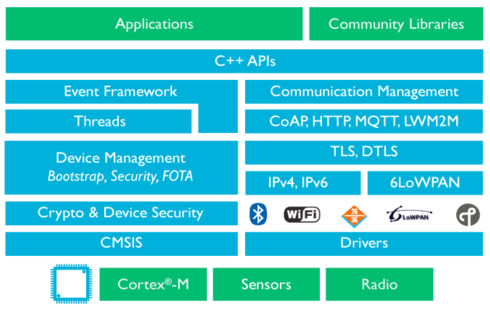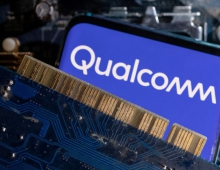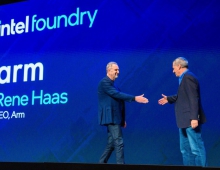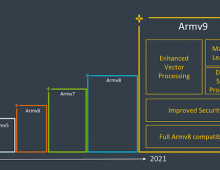
ARM Announces Device Platform and Free Operating System For Internet of Things Deployment
Chip design company ARM today released a new operating system that could play a big role in building out the Internet of Things. Called mbed OS, the operating system aims to provide a common software layer for securing and connecting the devices expected to be hooked up to networks in the coming years. ARM also announced the ARM mbed IoT Device Platform, built around open standards and expected to bring Internet protocols, security and standards-based manageability into one integrated solution optimized for energy and cost-constrained devices. It is supported by mbed hardware and software ecosystem that will provide common building blocks for IoT devices and services.
The mbed OS is a free operating system for ARM Cortex-M processor based devices that consolidates the fundamental building blocks of the IoT in one integrated set of software components. It takes up a scant 256KB of memory or less so it can be installed on tiny devices such as sensors. It includes C++ programming interfaces, an event framework, a communication manager and support for cryptography, among other things.It contains security, communication and device management features to enable the development of production-grade, energy-efficient IoT devices. It is available ARM's mbed partners in Q4 2014 for early development, with the first production devices due in 2015.

The new OS supports key standards such as Bluetooth Smart, 2G, 3G, LTE and CDMA cellular technologies, Thread, Wi-Fi, and 802.15.4/6LoWPAN along with TLS/DTLS, CoAP, HTTP, MQTT and Lightweight M2M.
ARM is also offering the mbed Device Server. Available now, it is a licensable software product that provides the required server-side technologies to connect and manage devices in a secure way. It also provides a bridge between the protocols designed for use on IoT devices and the APIs that are used by web developers. This simplifies the integration of IoT devices that provide "little data" into cloud frameworks that deploy "big data" analytics on the aggregated information. Built around open standards, the product scales to handle the connections and management of millions of devices.
ARM lso launched the mbed.org, a website that provides a database of hardware development kits, a repository for reusable software components, reference applications, documentation and web-based development tools.
"Deploying IoT-enabled products and services requires a diverse set of technologies and skills to be coordinated across an organization," said Simon Segars, CEO, ARM. "ARM mbed will make this easier by offering the necessary building blocks to enable our expanding set of ecosystem partners to focus on the problems they need to solve to differentiate their products, instead of common infrastructure technologies. This will accelerate the growth and adoption of the IoT in all sectors of the global economy."
The mbed partner ecosystem include Atmel, CSR, Ericsson, Farnell, Freescale, IBM, KDDI, Marvell, MegaChips, MultiTech, Nordic Semiconductor, NXP, Renesas, SeeControl, Semtech, Silicon Labs, Stream Technologies, ST, Telenor Connexion, Telefonica, Thundersoft, u-blox, wot.io and Zebra.





















